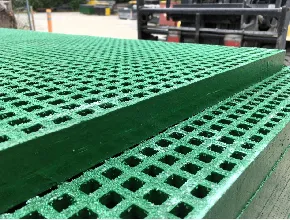loading...
- No. 9, Xingyuan South Street, Dongwaihuan Road, Zaoqiang County, Hengshui, Hebei, China
- admin@zjcomposites.com
- +86 15097380338
- Welcome to visit our website!
Versatile Handrail Solutions for Modular Design and Safety Applications
The Benefits and Applications of Modular Handrails
In recent years, the construction and design industries have witnessed a significant evolution in product offerings, aiming to enhance safety, aesthetics, and functionality. Among these innovations, modular handrails have emerged as a versatile solution for various building and construction needs. Modular handrails are pre-manufactured components that can be easily assembled and customized to fit different settings. This article explores the benefits and applications of modular handrails, highlighting why they are becoming a favored choice among architects, builders, and property owners.
Enhancing Safety
Safety is always a primary concern in any construction or renovation project, especially in spaces where people move about frequently. Modular handrails provide a robust solution designed to meet safety standards and regulations. They can be installed in various environments such as staircases, balconies, ramps, and walkways, offering support and preventing falls. The ability to customize these handrails according to the specific needs of the space ensures that they provide maximum protection for users.
Modern modular handrails are constructed from durable materials like aluminum, stainless steel, and PVC, which resist corrosion and wear, ensuring long-lasting safety. Additionally, many modular handrails can be equipped with features such as non-slip coatings and illuminated pathways, further enhancing user safety.
Customization and Aesthetic Appeal
One of the standout characteristics of modular handrails is their high degree of customization. Builders and designers can choose from a variety of shapes, colors, and materials to create the desired look and feel for their projects. This flexibility allows handrails to complement a building's architectural style while still adhering to safety standards.
For instance, in commercial spaces, handrails can be designed to reflect the brand's identity, utilizing colors and materials that align with the company’s image. In residential settings, homeowners can opt for handrails that blend seamlessly with their interior or exterior design, whether they prefer a modern look or a more traditional aesthetic.
Cost-Effectiveness and Efficiency
modular handrail

The modular nature of these handrails translates to significant cost and time savings during installation. Unlike traditional handrails that may require custom fabrication, modular handrails come as pre-fabricated components, which simplifies the installation process. This means less labor time and quicker project completion, ultimately reducing overall costs.
Furthermore, the standardization of modular handrails allows for bulk ordering, which can result in substantial cost reductions. In cases where modifications are needed, adjustments can be made easily, often without needing a complete redesign.
Versatile Applications
Modular handrails are incredibly versatile, making them suitable for a wide range of applications across various sectors. In commercial construction, they are commonly used in office buildings, shopping centers, and public facilities where safety and accessibility are paramount. In residential projects, modular handrails can be applied to decks, patios, and staircases, catering to families with children or individuals with mobility issues.
Outside of conventional buildings, modular handrails are also making inroads into unique environments like parks, sports facilities, and even marine applications. For example, marinas can utilize modular handrails to ensure the safety of boat docks, providing secure access for boaters and pedestrians alike.
Environmental Sustainability
With a growing emphasis on environmental sustainability in construction, many manufacturers of modular handrails are adopting eco-friendly practices. This includes using recyclable materials and implementing sustainable manufacturing processes. By choosing modular handrails, builders and property owners can contribute to a greener future while still maintaining high-quality safety solutions.
Conclusion
Modular handrails represent a modern approach to safety and design in construction. Their benefits of enhanced safety, customization, efficiency, versatility, and sustainability make them an attractive option for architects, builders, and property owners alike. As the demand for innovative and functional solutions continues to rise, modular handrails are undoubtedly establishing themselves as a vital component in contemporary construction and design. Embracing this trend not only improves user safety but also adds value to any project, making it a win-win scenario for all stakeholders involved.
-
The Rise of FRP Profiles: Strong, Lightweight, and Built to LastNewsJul.14,2025
-
SMC Panel Tanks: A Modern Water Storage Solution for All EnvironmentsNewsJul.14,2025
-
GRP Grating: A Modern Solution for Safe and Durable Access SystemsNewsJul.14,2025
-
Galvanized Steel Water Tanks: Durable, Reliable, and Ready for UseNewsJul.14,2025
-
FRP Mini Mesh Grating: The Safer, Smarter Flooring SolutionNewsJul.14,2025
-
Exploring FRP Vessels: Durable Solutions for Modern Fluid HandlingNewsJul.14,2025
-
GRP Structures: The Future of Lightweight, High-Performance EngineeringNewsJun.20,2025
